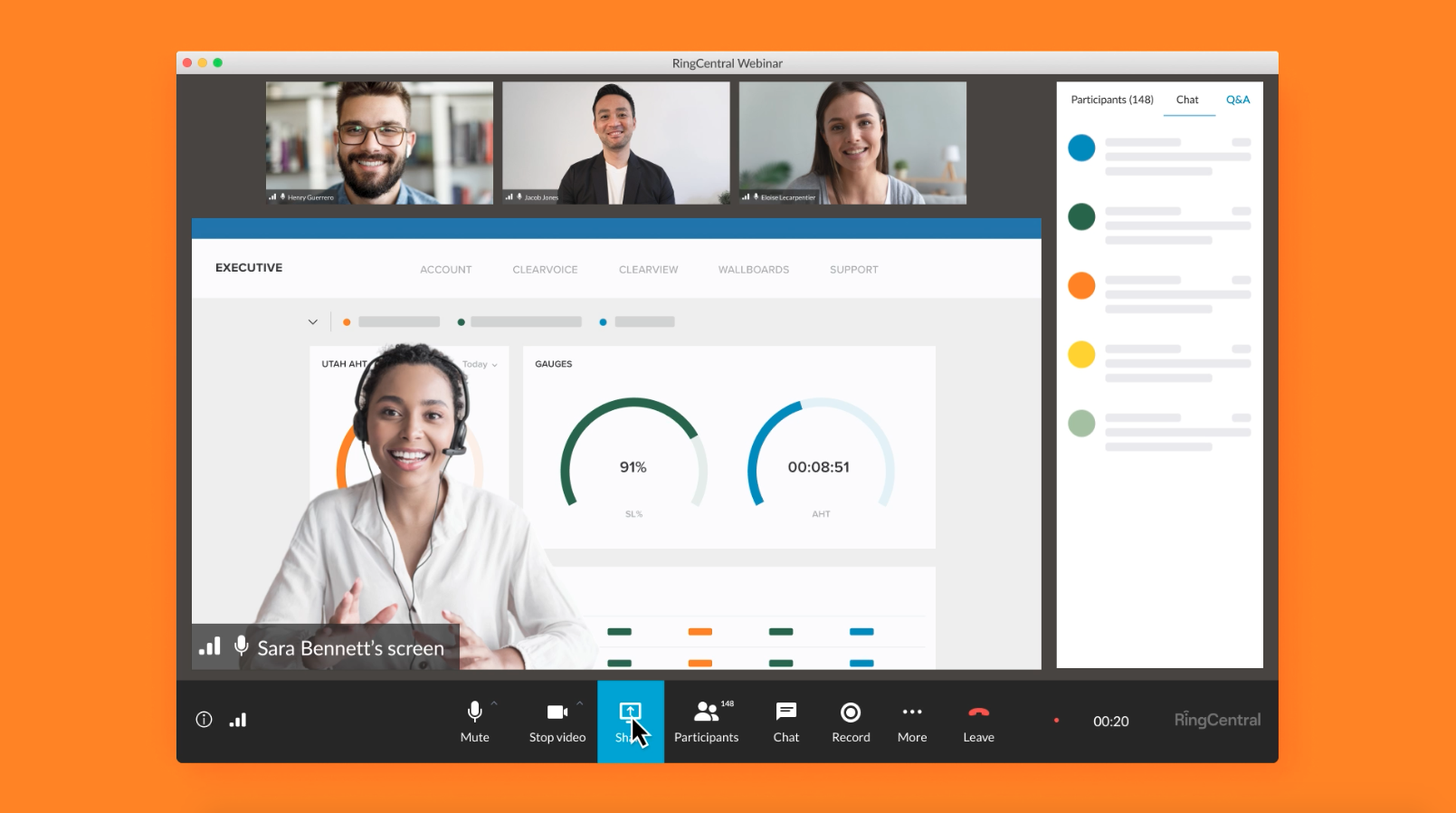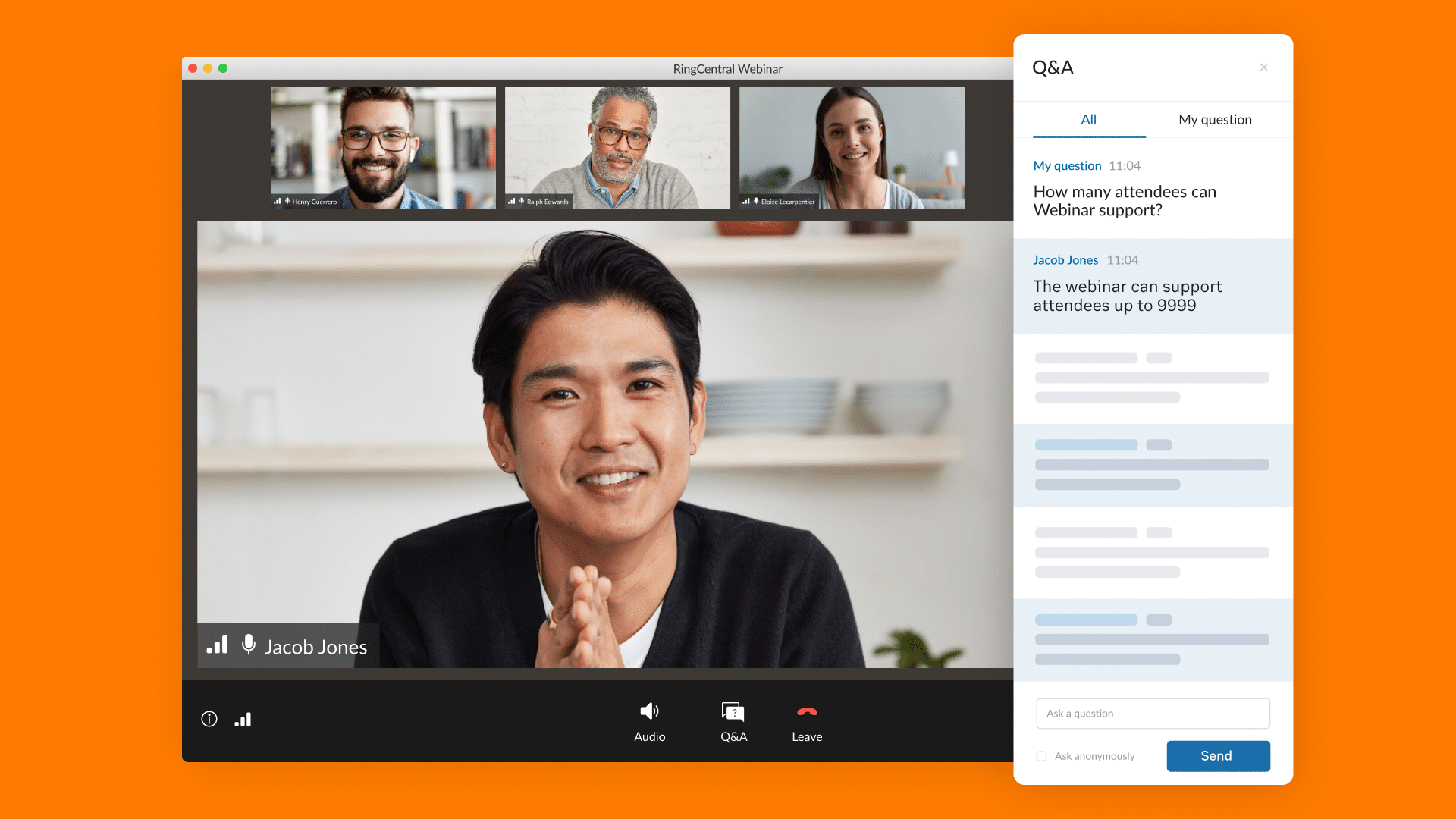Imagine being part of a TV cast or crew. And then the show you’ve worked so hard to produce gets canceled. One of your first thoughts might be: What could we have done differently?
Reflecting on finished projects –– with an open mind –– can help you pinpoint improvements and double down on what worked well. This type of post-experience evaluation is especially useful following resource-heavy activities like events.
The process of analyzing wins and losses for an event is often formalized through debrief meetings with internal and external stakeholders. These meetings help leadership teams analyze the event from every angle and determine whether or not to repeat it.
With all the people and details involved, event debriefs can be complicated. But, if well organized, they’re valuable sources of feedback that, when combined with your event data, can provide productive insights.
Read on to learn how to run a seamless post-event debrief that provides a comprehensive understanding of how your event went — from the big picture down to the details.
Gather the whole crew
The sheer number of people involved in a TV production is jaw dropping. The same often holds true for large-scale events. But even with smaller experiences, a core cast of characters brought the event to life.
Getting every member of the team in the same debrief room — virtually or in person — can be a scheduling nightmare, but it’s worth the effort to understand each stakeholder’s point of view. Schedule these meetings during the event planning process so they’re locked in well in advance.
Begin the debrief process by listing everyone who handled event production and management. You’ll want to consider feedback from those responsible for major functions, as well as team members who were on the ground experiencing the action.
Depending on the size of the event, debriefs can include feedback from:
Core event leads, such as:
- The event director
- Event managers
- The marketing lead
- The event analytics lead
- Sales and customer leads
- On-site and/or virtual leads
- Designers
- The IT lead
- Executive leadership
The event marketing team, including representatives from:
- Content marketing
- Social media marketing
- Demand generation
- Experiential marketing
- Field marketing
Logistics staff, including:
- The caterer (if applicable)
- Security
- Vendors
- Venue management
- The event platform team
- Event-day volunteers and staff
The sponsorship partnership team, such as:
- Sponsors
- Exhibitors
The tech and A/V team, like:
- IT or systems staff
- A/V technicians
The finance team, including:
- The finance director or manager
- Accounts payable and accounts receivable
- Procurement
Producing events takes a village, so consider inviting all contributors to participate, including your legal team, relevant agencies, and contractors. Each team member plays a critical role, so ensuring everyone is heard and understood can be the difference between shelving the event or renewing for a second season.
Be intentional about your timing
After binging the show of the moment, don’t you find yourself eager to chat about it with anyone who will listen? Your team likely feels the same way right after an event. Ride this wave by conducting your debrief as soon as possible after the event wraps. That way, details will be fresh in everyone’s mind.
Sponsors, vendors, and team members often have packed schedules. Consider saving a spot on their calendars –– and preventing future headaches –– by organizing, planning, and scheduling the debrief before the event even happens.
Begin the debriefing process by meeting with your internal team first. Consider these tips when planning the meeting to help ensure a thorough review:
- Schedule the meeting for one or two days (at most) after the event.
- Provide dedicated time for the team to organize relevant data and assets for the debrief call.
- Use an event debrief template to help document your team’s feedback and reflections.
Consider the following for the session with your external team:
- Schedule the debrief call sometime during the week following the event.
- Give participants time to review their event notes and prepare their feedback.
- While this meeting time can be more flexible, make sure the internal team is already on the same page when debriefing with speakers, sponsors, and other external partners.
Be thorough
At the end of the day, there’s always room for improvement. So, find the opportunities that make it possible to “fail forward,” and use those lessons to level up your next event.
When debriefing, begin by reviewing initial event objectives and goals and analyzing their outcomes. This will allow you to measure success and provide a benchmarking baseline to reference after future events.
Some of the guiding questions for each stakeholder can be:
- What was your original definition of success for this experience and how did it play out?
- Were your expectations met, exceeded, or missed? How so?
- Did the event deliver on your desired business outcomes?
Ask plenty of questions
Remember, your debrief is only as good as the questions you ask. Revisit your event brief to look at where you started against where you finished. Then, consider compiling responses to the following questions:
Gifting:
- Were the gifts well received?
- Were they documented and shared on social media?
- What was the quality like? How sustainable were the gifts?
- Were they worth the cost?
Food and beverage:
- What were the audience’s thoughts on food and beverage?
- When it came to food and drink, was there too little, enough, or too much?
- Was the cost-to-value ratio positive?
- Was the food and beverage vendor easy to work with?
Venue:
- What did stakeholders think of the venue (whether it was virtual, physical, or both)?
- Did it fit the purpose of the event?
- Would you use the same venue(s) again?
- How were the staff at the physical venue? How was the team behind the virtual venue?
- If the event took place in person, was it easy for folks to navigate the venue?
Technology:
- Was the technology reliable on event day? Did it perform well and effectively support event needs?
- Was it easy for speakers to navigate the technology (particularly if they were speaking virtually)?
- Could everyone hear the event speakers, hosts, and moderators?
- Were there any technical glitches?
- Was any technology easy for attendees to use?
Marketing:
- Was the event well marketed?
- What was social media traction like during the event?
- How many tickets were sold, and was the ticket sales goal met?
- How is post-event marketing going?
Speaker:
- Was the speakers’ content appropriate and engaging for the audience?
- Did attendees gather actionable insights from the speakers?
- Would stakeholders recommend the same speakers to another event?
Sponsors:
- Are the sponsors satisfied with their event presence and activations?
- Was there enough traffic in their booths?
- Did sponsors get their desired return on investment (ROI)?
- Would the team aim to secure the same sponsors next year?
Branding:
- How was the event branded?
- Was it in line with the company brand?
- Was there a theme to the event, and did it encapsulate the central message of the event?
Engagement:
- What tools and methods were used to engage the audience?
- What were the conversations and debates like?
- What was the overall attendee rating for the event?
- Were people actively engaging around the event on social media?
- Are attendees likely to return for another event?
- What were the networking statistics (if virtual)?
Event budget:
- Was the event within budget?
- If there had been more or less budget, what would the team add, and what would they remove?
Construct your debrief report
When building your report, you’ll give yourself a head start if you use an event debrief template. The first section covers the basics –– critical details that set the scene for the rest of the document. To save time, fill in the information in this section before the debrief meeting begins:
- Event name
- Event date
- Venue name(s)
- Ticket cost
- High-level summary
- Goals and objectives
The second section of the debrief report includes your findings and how they supported or contradicted your expectations. If you can, gather this data from your team leads before the debrief meeting so everyone has time to review and add their own insights:
- Team
- Venue
- Budget
- Speakers
- Branding
- Marketing
- Technology
- Sponsorship
- Engagement
- Audience feedback
- Gifting
- Food and beverage
Use the final section of your event debrief report as a cache for recommendations. In this section, compile the top insights from your team’s debrief conversation so they can easily inform any follow-up events.
Based on your findings and reflections, present a few high-level recommendations for the next event. These could be changes to the structure, adjustments to the budget, or even new technologies to try. Whatever your team decides, aim for achievable and realistic next steps that are in line with the time frame and resources you have to work with.
Expect to share these recommendations with stakeholders to build momentum toward the next experience.
Embrace continuous improvement for future success
Conducting a thorough post-event debrief is a critical step that can significantly impact the success of your future events. By gathering comprehensive feedback, analyzing data, and reflecting on both successes and areas for improvement, you’re setting the stage for more impactful and efficient events in the future.
Remember, the debrief process is not just about identifying what went wrong – it’s also about celebrating wins and understanding what worked well. This balanced approach allows you to refine your event strategy, optimize resources, and create even more engaging experiences for your attendees.
As you move forward, use the insights gained from your debrief to inform your planning for upcoming events. By embracing this cycle of reflection and improvement, you’ll be well-positioned to deliver increasingly successful events that resonate with your audience and achieve your organizational goals.
Explore RingCentral Events today to take your events to the next level.
Originally published Sep 01, 2022, updated Oct 20, 2024





